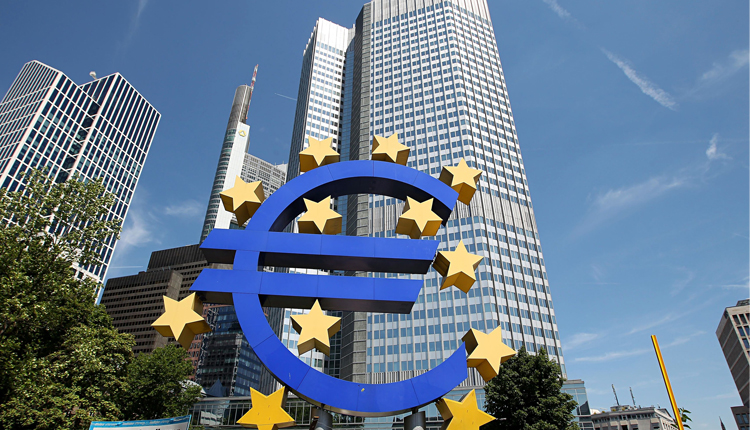The European Central Bank (ECB) on Thursday kept rates unchanged during President Mario Draghi’s last monetary policy meeting at the institution.
The central bank also kept its forward guidance unchanged, suggesting that its main interest rates would remain at their current or lower levels until there is a strong evidence of a pick-up in prices. The euro were fairly flat, at $1.1112 against the dollar.
“Incoming economic data continue to point to moderate, but positive growth in the second half of this year,” Draghi told reporters Thursday afternoon. He explained that weakness in international trade was denting manufacturing activity in the euro area, as well as business investment.
The ECB expects a gross domestic product rate for the region of 1.1 percent this year and 1.2 percent in 2020. It also forecasts a headline inflation rate of 1.2 percent and 1 percent for 2019 and 2020, respectively. The ECB’s mandate is to keep inflation “below but close to 2 percent.”
“A cross-check of the outcome of the economic analysis with the signals coming from the monetary analysis confirmed that an ample degree of monetary accommodation is still necessary,” Draghi said.
The euro zone is seeing lower growth rates on the back of global trade tensions, a weaker manufacturing sector, and other economic uncertainties, such as Brexit.
In this context, the Frankfurt-based bank had announced last month a massive stimulus package to boost the euro area. This included a 10 basis point cut to the deposit rate, new lending conditions to commercial banks as well as a second round of quantitative easing. The current ECB deposit rate is -0.5 percent, the lowest on record.
The decision to restart purchasing government bonds sparked some division within the central bank. Minutes from the meeting revealed that some of Draghi’s colleagues were not on board with the decision.
Draghi, who will leave the ECB after eight years next week, told CNBC’s Annette Weisbach that he’s not worried that this division will hurt his legacy.
“Frankly the answer is no. We have discussions, everybody has discussions; all jurisdictions have disagreements when monetary policy decisions come to be discussed and these disagreements are often made public, often they are not … I have taken this as part and parcel of the ongoing debate and discussions.”
The ECB reiterated Thursday that the second round of QE will start on November 1 at a monthly pace of 20 billion euros ($22.3 billion) per month.
“The Governing Council expects them to run for as long as necessary to reinforce the accommodative impact of its policy rates, and to end shortly before it starts raising the key ECB interest rates,” the bank said in a statement.
Independence
Draghi also warned that there’s growing political pressure on central banks and that this impacts any attempt at effective monetary policy. In the U.S., for example, President Donald Trump has often criticized the Federal Reserve chairman for not lowering interest rates at a quicker pace.
“Is there political pressure on central banks? True. You can actually see more political pressure in the last year than many years before. But is it equally true for the ECB? Much less so, frankly. I had occasional exchanges with this or the other finance minister, but (it) never became anything comparable to what you see in other countries today,” Draghi told reporters.
Draghi, a former executive at Goldman Sachs, told reporters that he doesn’t know yet what he’ll do next. “I just don’t know,” he said, “just ask my wife, she will know better, I think.”
Nonetheless, he said he leaves office with the feeling of “someone who tried to comply with the mandate in the best possible way.”
Source: CNBC


